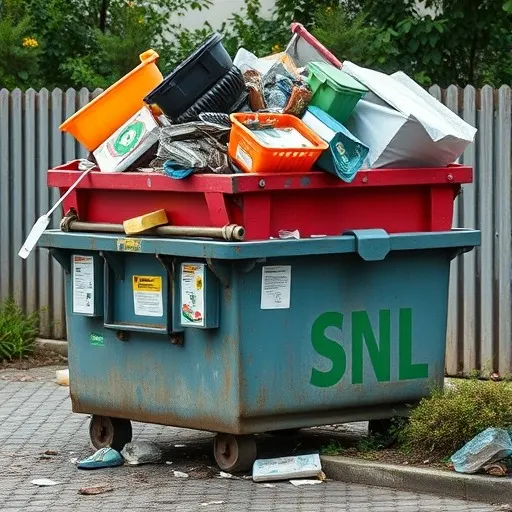What happens if a skip is overloaded?
When hiring a skip, it's important to understand the limits and guidelines of your particular skip to avoid overloading it. With our mini skips, midi skips and maxi skips, you should be able to find the right size for your requirements effortlessly at Taylors Skip Hire.
Overloaded skips
An overloaded skip refers to a situation where the contents of the skip exceed its safe and legal capacity. This can occur when too much waste is packed into the skip, causing it to go beyond the designated fill level. While it may be tempting to maximise the use of available space, overloading a skip can lead to several consequences that may compromise safety, waste management efficiency, and legal compliance.
Dangers of Overloaded Skips
An overloaded skip poses risks to both the transportation and collection process. Skips are designed with weight limits in mind, and exceeding these limits can put excessive strain on the lifting equipment during collection. Overloading may also cause damage to the skip, making it unsafe to lift and transport.
Overloading a skip can also lead to spillage of rubbish and waste materials during transportation. Loose debris and materials that protrude from the skip will also pose hazards to pedestrians, motorists, and surrounding property. This not only creates a messy and hazardous environment but also raises concerns about environmental pollution and public safety.
Legal Regulations for Skip Loading Capacities
Local authorities and waste management regulations dictate specific fill levels for skips. Overloading a skip violates these regulations, potentially resulting in penalties and fines. As responsible waste management providers, it is our duty to adhere to these regulations and promote best practices in the industry.
How to Avoid Overloading Your Skip
To avoid the negative consequences of overloading skips, it's important to follow a few simple guidelines.
Familiarise yourself with the maximum fill level indicated on the skip. This fill level is typically marked by a line or other clear indicators. Respect these limits to ensure the safe and efficient collection of your waste.
If you anticipate generating a large volume of waste, it may be more practical to consider hiring a larger skip or arranging for additional collections. This ensures that waste is managed safely within the designated capacity, every time.
Lastly, it's worth considering alternative waste management options for particularly large or bulky items that may not fit within the skip's dimensions. Speak with our team about our rubbish removals and find out what solutions we could have for you!
If you have any questions, or if you'd like further guidance, don't hesitate to contact us. We're always happy to help.


